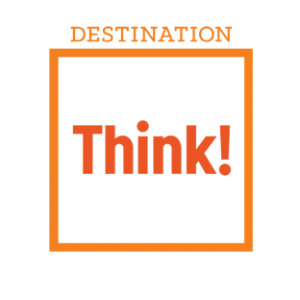There are opinions floating around about the viability and usefulness of destination based Social Networks. Karin Schmollgruber for example doesn’t have a lot of faith in a social network for a single destination.
Karin is one of the thought leaders in the travel 2.0 blogging community and I respect her opinion a lot. But I disagree with her about this one. I think the CoolAustria and Holland 2.0 experiments have taught us a few lessons. But I don’t reach the same conclusion.
The destination based Social Networks mentioned above (and now Sweden as well) all implemented some form of “be like Facebook” strategy, combined with a plethora of Web 2.0 tools. The core challenge with this approach is that travelers who are planning trips need information and don’t necessarily want to become part of another Social Network, create a profile, make friends and more, they just want to plan a vacation.
With Holland as an exception, these social networks are also separated from their official websites, a huge missed opportunity. The result from all of the above is that all these networks suffer from low participation, where high participation is needed. facebook is great, but a ‘be like Facebook’ approach is not going to work for a destination. Karin is absolutely right about that.
Some suggest that travel related social networks is just another source for content. Simply aggregate User Generated Content from third party networks, and you’re done. New Zealand has done it, Canada has done it. This is definitely useful content for travelers. And I like simplicity, but I don’t like to oversimplify things. I thought Web 2.0 was about interactivity and two way communication. Aggregating User Generated Content and publishing it on a website is Web 1.5.
DMO’s need to build strong relationships with consumers, and help them plan and book vacations, before and during their trip, by allowing all relevant stakeholders to participate on a destination website. These stakeholders are:
- Travelers, planning a trip, or sharing experiences and content about a trip
- Residents, they are a sub-group of travelers, but a very important one
- The tourism industry, selling their tourism products
- The DMO itself, providing the ‘official’ information
The opportunity for a destination based social network is to harness industry, passionate residents and past travelers, and engage them in a dialog with travelers to assist them with their trip planning. This is a natural extension of what DMOS’s do. They sell the destination by connecting travelers with tourism product (connecting supply with demand). Destinations already have relationships with their industry. They need find and encourage their ‘brand advocates’ to engage on their networks.
Groups for cities, towns, sectors, etc. will form. There will be differences of opinion, and that’s ok. That’s how trip planners can evaluate the opinion of many against their own criteria and make the best decision. Certain content can be sourced from third parties. What’s the point of creating your own product rating system when you can source it directly from Tripadvisor for example. Other content will have to be created on a destination based social network.
With the introduction open social standard, there is an opportunity to leverage existing networks people are already part of. If somebody can take their social graph with them, all of a sudden we can leverage the existing connections (friends) people already have, adding a whole layer of additional usefulness and credibility.
The social network I envision and intent to create for HelloBC.com is a mash-up of our official information, aggregated third party content, combined with our resident advocates, passionate past travelers and tourism businesses, all interacting with travelers in an open and transparent way. The direct, and two-way interaction is an opportunity to add the credibility, objectivity and authenticity travelers are looking for. And it will be nothing like Facebook.
Tags: DMO, social media, thoughts, website
